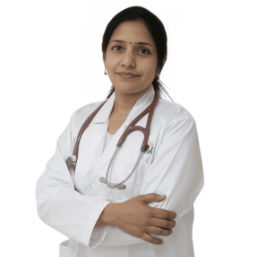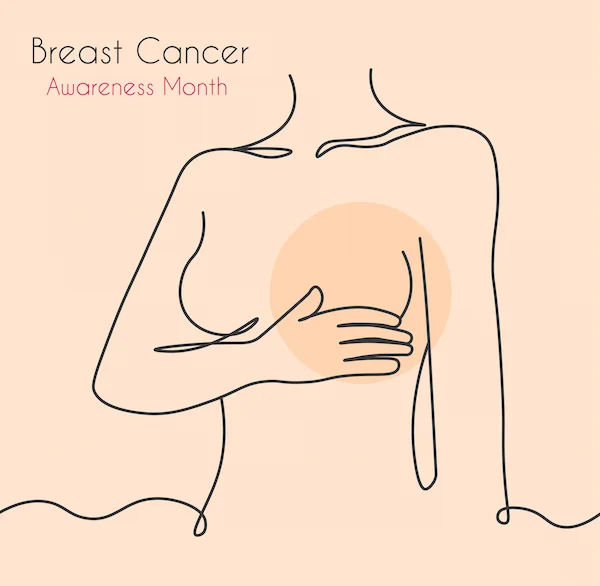Early Breast Cancer Screening: Everything You Need To Know!
Early breast cancer screening is crucial for timely detection, enabling better treatment options and improved outcomes, ultimately enhancing survival rates and quality of life for those diagnosed.

Written by
Last updated on 3rd Jul, 2025
Breast cancer remains one of the most common cancers worldwide, affecting millions of women and, in rare cases, men. Despite advancements in treatment, early detection continues to be the most effective way to improve survival rates and treatment outcomes. Screening allows for the identification of abnormalities before symptoms arise, increasing the chances of successful intervention.
Regular screenings can significantly reduce breast cancer-related mortality by catching the disease in its earliest, most treatable stages.
What is Breast Cancer Screening?
Breast cancer screening refers to medical tests used to detect signs of cancer in individuals who do not yet have symptoms. Unlike diagnostic tests, which confirm the presence of cancer in symptomatic individuals, screening tests serve as preventative measures to monitor breast health over time.
There are multiple screening methods, each designed to detect abnormalities in different ways:
Mammograms remain the gold standard for detecting breast cancer early.
Clinical breast exams (CBEs) involve a physical examination by a healthcare provider.
Breast ultrasounds and MRIs are supplemental tools, particularly useful for individuals with dense breast tissue or high genetic risk.
The best screening approach varies depending on factors such as age, medical history, and genetic predisposition.
Who Should Get Screened?
Breast cancer screening recommendations vary based on age, risk factors, and personal medical history. In general, most healthcare organisations recommend that women begin routine mammograms between the ages of 40 and 50, depending on individual risk levels.
For women at average risk, guidelines suggest:
Ages 40-44: Optional screening; discussions with a doctor can help determine the right approach.
Ages 45-54: Annual mammograms are recommended.
Ages 55 and older: Screenings can be reduced to every two years, though annual exams remain an option.
For those at higher risk, such as individuals with a family history of breast cancer or BRCA1/BRCA2 genetic mutations, screenings may need to begin earlier and include additional imaging techniques like MRI scans. Regular self-examinations and clinical breast exams by a healthcare provider may also be advised.
Common Screening Methods
Different breast cancer screening methods are used depending on individual risk levels and medical history.
Mammography (Standard & 3D Mammograms)
Traditional mammography uses low-dose X-rays to detect abnormalities.
3D mammography (Digital Breast Tomosynthesis) captures multiple layers of breast tissue, providing clearer images and reducing false positives.
Clinical Breast Exams (CBEs)
A healthcare professional manually examines the breasts and underarms for lumps or abnormalities.
CBEs are especially valuable for younger women or those without access to imaging technology.
Breast MRI and Ultrasound
MRI scans provide highly detailed images, useful for individuals at high risk.
Ultrasounds help differentiate between solid tumours and fluid-filled cysts, especially in dense breast tissue.
These methods are often used in combination to increase diagnostic accuracy.
Benefits of Early Screening
The biggest advantage of regular breast cancer screening is early detection, which drastically improves treatment success rates.
Increases survival rates: When caught early, localised breast cancer has a nearly 99% five-year survival rate.
Enables less aggressive treatment: Early detection often reduces the need for mastectomies, chemotherapy, or extensive radiation therapy.
Detects precancerous changes: Some cell abnormalities can be treated before they develop into invasive cancer, improving long-term health.
By detecting cancer before it spreads, patients have more treatment options and a better prognosis.
Risks and Limitations
While breast cancer screening has saved countless lives, it is important to recognise its potential drawbacks.
False Positives & Unnecessary Biopsies
Some screenings detect abnormalities that turn out to be non-cancerous, leading to unnecessary follow-up tests and biopsies.
Younger women and those with dense breast tissue are more likely to receive false positives.
Overdiagnosis and Overtreatment
Screening may detect slow-growing cancers that might never become life-threatening.
Some patients undergo unnecessary treatments like surgery and radiation for conditions that might not have progressed.
Despite these concerns, most experts agree that the benefits of screening outweigh the risks, particularly for high-risk individuals.
Preparing for a Breast Cancer Screening
Understanding what to expect before a mammogram or screening test can help reduce anxiety.
Before the Screening:
Avoid using deodorants, lotions, or powders on the chest and underarms (they can interfere with imaging).
Wear a two-piece outfit for convenience, as the upper body will need to be undressed.
After the Screening:
Results are usually available within a few days to a week.
If an abnormality is detected, further imaging or a biopsy may be required.
Not all abnormalities indicate cancer—follow-up tests are often precautionary rather than conclusive.
Advances in Screening Technology
Innovations in breast cancer screening are continuously improving accuracy, reducing false positives, and personalising screening approaches. One such advancement is Artificial Intelligence (AI)-assisted imaging, which helps radiologists detect subtle abnormalities that may be missed by the human eye. AI-powered systems enhance diagnostic precision, particularly for dense breast tissue cases.
Another emerging technology is molecular breast imaging (MBI), which uses a radioactive tracer to highlight abnormal cells. MBI is particularly beneficial for women with dense breasts who may not benefit as much from traditional mammography. Personalised screening approaches based on genetic profiling and individual risk assessments are also shaping the future of breast cancer detection, ensuring that screening strategies are tailored to each patient’s needs.
Global and Local Screening Programs
Breast cancer screening programs exist worldwide, offering varying levels of accessibility and government support. Countries with well-established screening programs, such as the United States, United Kingdom, Canada, and Australia, provide routine mammograms for women within specific age groups, often covered by public healthcare systems. Programs like Europe’s Breast Cancer Screening Initiative and WHO’s Global Breast Cancer Initiative are working toward increasing access to early detection worldwide.
In many regions, however, access to screening remains a challenge due to financial, logistical, or cultural barriers. Efforts are underway to expand mobile screening units, community awareness campaigns, and subsidised mammography programs to reach underserved populations.
Conclusion
Breast cancer screening is a crucial tool in the fight against breast cancer, offering individuals the best chance at early detection and effective treatment. Regular mammograms, clinical breast exams, and advanced imaging techniques have saved countless lives by catching cancer in its earliest stages. While screening has limitations, the benefits far outweigh the risks, particularly for individuals at high risk. Encouraging regular screening, raising awareness about risk factors, and staying informed about advancements in detection technology can significantly reduce breast cancer-related deaths.
Consult Top Gynaecological Oncologists
Consult Top Gynaecological Oncologists

Dr. Sai Lakshmi Daayana
Gynaecological Oncologist
18 Years • MBBS, MRCOG
Hyderabad
Apollo Hospitals Jubilee Hills, Hyderabad
(200+ Patients)

Dr. Rupam Manna
Radiation Specialist Oncologist
4 Years • MBBS MD(RADIO THERAPY)
Barasat
Diab-Eat-Ease, Barasat

Dr. Sreeparna Roy
Obstetrician and Gynaecologist
8 Years • MBBS , MS (OBSTETRICS & GYNAECOLOGY), Fellowship in Infertility, Endoscopy & Ultrasonography), Fellowship in Laparoscopy & Hysteroscopy,DRM
Kolkata
Dr Utsa Basu Clinic, Kolkata
Dr. Navin Srinivasan
Gynaecological Oncologist
9 Years • MBBS, MS DNB(OBS-GYNAE), MCH (GYNAE ONCOLOGY)
Bengaluru
Apollo Clinic Mahadevapura, Bengaluru

Dr. Priyanka Srivastava
Medical Oncologist
15 Years • MBBS, MD, DrNB Medical Oncology, Fellowship (Medical Oncology) , PMCC, UOT Canada.
Ahmedabad
Apollo Hospitals Gandhinagar, Ahmedabad

